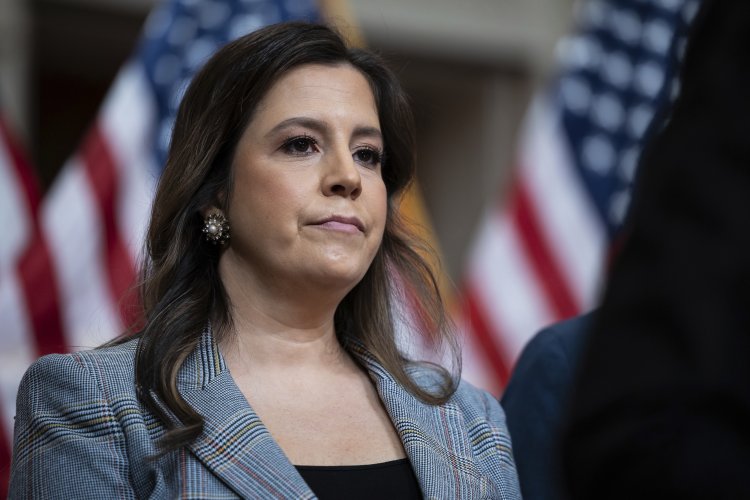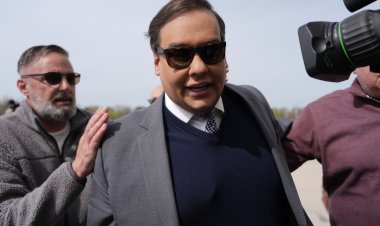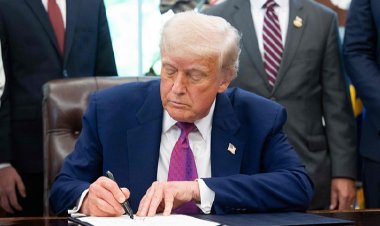Stefanik's exit hints at Republican concerns over narrow majorities
Democrats claim that Republicans are in a state of panic.

Upcoming elections in heavily Republican areas of Florida were expected to bolster the GOP's majority in the House and potentially clear the way for Stefanik's exit. However, Trump stated he didn't "want to take a chance on anyone else running for Elise’s seat."
The choice to withdraw Stefanik from nomination emerged amid growing Republican concerns regarding the upcoming race to succeed National Security Advisor Mike Waltz on April 1. Polls indicated a tightening in the district, which Trump had previously carried by a substantial 30 points, prompting the president to host a tele-town hall aimed at supporting Republican candidate Randy Fine.
An internal GOP poll from late March revealed that Democrat Josh Weil held a slight lead over Fine, 44 to 41 percent, with 10 percent of voters still undecided. This finding alarmed party officials and encouraged them to intensify their efforts to secure a strong victory in the district.
Some Republican strategists believe the risk of losing Stefanik’s extensive northern New York seat, which Trump won by 20 points in 2024, is too great. "Can they defend her seat? Absolutely. But why do you do that right now?" questioned Charlie Harper, a former aide to Rep. Karen Handel during her victorious 2017 special election campaign in Georgia.
This concern is echoed by others within the party. “If we’re far underperforming in seats Trump won by 30 then there’s obvious concern about having to chance special elections in seats Trump won by a lot less,” said one prominent GOP operative, speaking on condition of anonymity. “The juice is not worth the squeeze sweating them out.”
Despite the apprehensions, Republicans are confident they would win in any contest for Stefanik’s seat. National Republican Congressional Committee spokesperson Maureen O’Toole asserted that the party would “win this seat in a special election and we’ll win it in a general election.”
In a Thursday evening appearance on Fox News, Stefanik remarked that her withdrawal was “about stepping up as a team, and I am doing that as a leader." She added, “I look forward to continue serving in different ways.”
In Florida, Weil, the Democratic contender, has amassed $10 million in fundraising. This prompted Elon Musk's America PAC to provide some last-minute financial support for Fine, along with contributions from Florida CFO Jimmy Patronis.
However, this surge in funding hasn't deterred Democrats from asserting that Republicans are panicking rather than simply playing it safe. Zac McCrary, a Democratic pollster working for Blake Gendebien in the previously scheduled special election for Stefanik’s seat, remarked, “this is a Jamaal Bowman-style five alarm fire bell.” He further emphasized, “Again, you don’t have to take anyone’s word for it, just see how Republicans are acting. They were very blasé about opening up the seat and now on a full retreat.”
Democrats have recently enjoyed a series of victories in down-ballot races, including a narrow special election win on Tuesday for a state Senate seat in Lancaster County, Pennsylvania, a district that Trump won by 15 points in 2024. This district included conservative areas where only one Democratic presidential candidate, Lyndon Johnson in 1964, has triumphed since the Civil War.
Nevertheless, any prospects for Democrats to flip Stefanik’s seat remain daunting. A recent poll obtained by PMG indicated a Republican candidate with a 16-point lead in the district. Stefanik had previously carried it by 24 points in 2024 — surpassing Trump’s 20-point margin — and Republicans currently hold an advantage with 80,000 more registered voters than Democrats.
One seasoned Republican consultant, who spoke anonymously, highlighted the shifting coalition of voters that many of whom were drawn to the party by Trump, as a significant factor behind recent challenges in special elections. “Republicans have traditionally done well in off-year elections and special elections because our voter coalition is more traditionally engaged voters," the consultant explained. “And now we depend more on less engaged voters and we need our folks to turn out, and it is a good wake-up call that we need to engage more.”
Anna Muller for TROIB News












